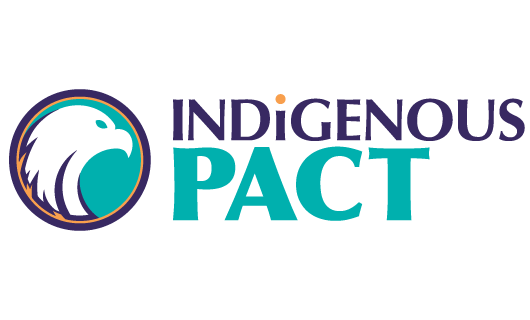

Indigenous Pact PBC, Inc

Wisconsin, United States
July 2019
Health insurance
Service with Minor Environmental Footprint
United States
Indigenous Pact believes health is the starting point for building strong communities and that ensuring every Native American has access to high quality care is the key to sustaining future generations. We leverage our knowledge of complex and ever-shifting government policy to guide Native Leaders to take control of their own destiny by helping them build, maintain, and extend access to sustainable carecentered solutions that improve the wellbeing of their Tribe. Our caring and crafted approach is centered around listening to the unique needs of each Tribal community, inspiring them with fresh perspectives, and then empowering them with the strategies, connections, and resources needed to fast track their vision. In so doing, we’re harnessing the collective power of Indian Country to reshape Native American systems of care so that each of our partner Tribe’s members, and all Native Americans, have access to the quality care they deserve when and where they need it — even when off the reservation. Join us, we’re stronger together.
Overall B Impact Score
Governance 20.7
Governance evaluates a company's overall mission, engagement around its social/environmental impact, ethics, and transparency. This section also evaluates the ability of a company to protect their mission and formally consider stakeholders in decision making through their corporate structure (e.g. benefit corporation) or corporate governing documents.
What is this? A company with an Impact Business Model is intentionally designed to create a specific positive outcome for one of its stakeholders - such as workers, community, environment, or customers.
Workers 22.3
Workers evaluates a company’s contributions to its employees’ financial security, health & safety, wellness, career development, and engagement & satisfaction. In addition, this section recognizes business models designed to benefit workers, such as companies that are at least 40% owned by non-executive employees and those that have workforce development programs to support individuals with barriers to employment.
Community 20.3
Community evaluates a company’s engagement with and impact on the communities in which it operates, hires from, and sources from. Topics include diversity, equity & inclusion, economic impact, civic engagement, charitable giving, and supply chain management. In addition, this section recognizes business models that are designed to address specific community-oriented problems, such as poverty alleviation through fair trade sourcing or distribution via microenterprises, producer cooperative models, locally focused economic development, and formal charitable giving commitments.
Environment 0.0
Environment evaluates a company’s overall environmental management practices as well as its impact on the air, climate, water, land, and biodiversity. This includes the direct impact of a company’s operations and, when applicable its supply chain and distribution channels. This section also recognizes companies with environmentally innovative production processes and those that sell products or services that have a positive environmental impact. Some examples might include products and services that create renewable energy, reduce consumption or waste, conserve land or wildlife, provide less toxic alternatives to the market, or educate people about environmental problems.
Customers 37.2
Customers evaluates a company’s stewardship of its customers through the quality of its products and services, ethical marketing, data privacy and security, and feedback channels. In addition, this section recognizes products or services that are designed to address a particular social problem for or through its customers, such as health or educational products, arts & media products, serving underserved customers/clients, and services that improve the social impact of other businesses or organizations.
What is this? A company with an Impact Business Model is intentionally designed to create a specific positive outcome for one of its stakeholders - such as workers, community, environment, or customers.